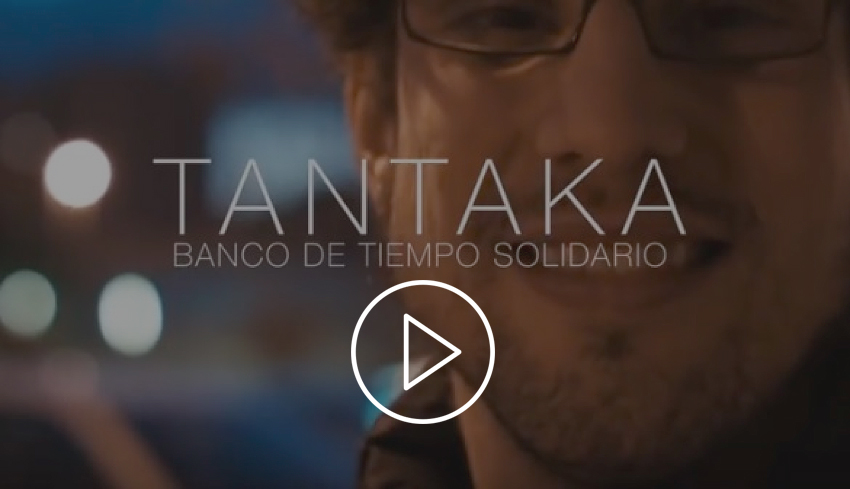Blogs
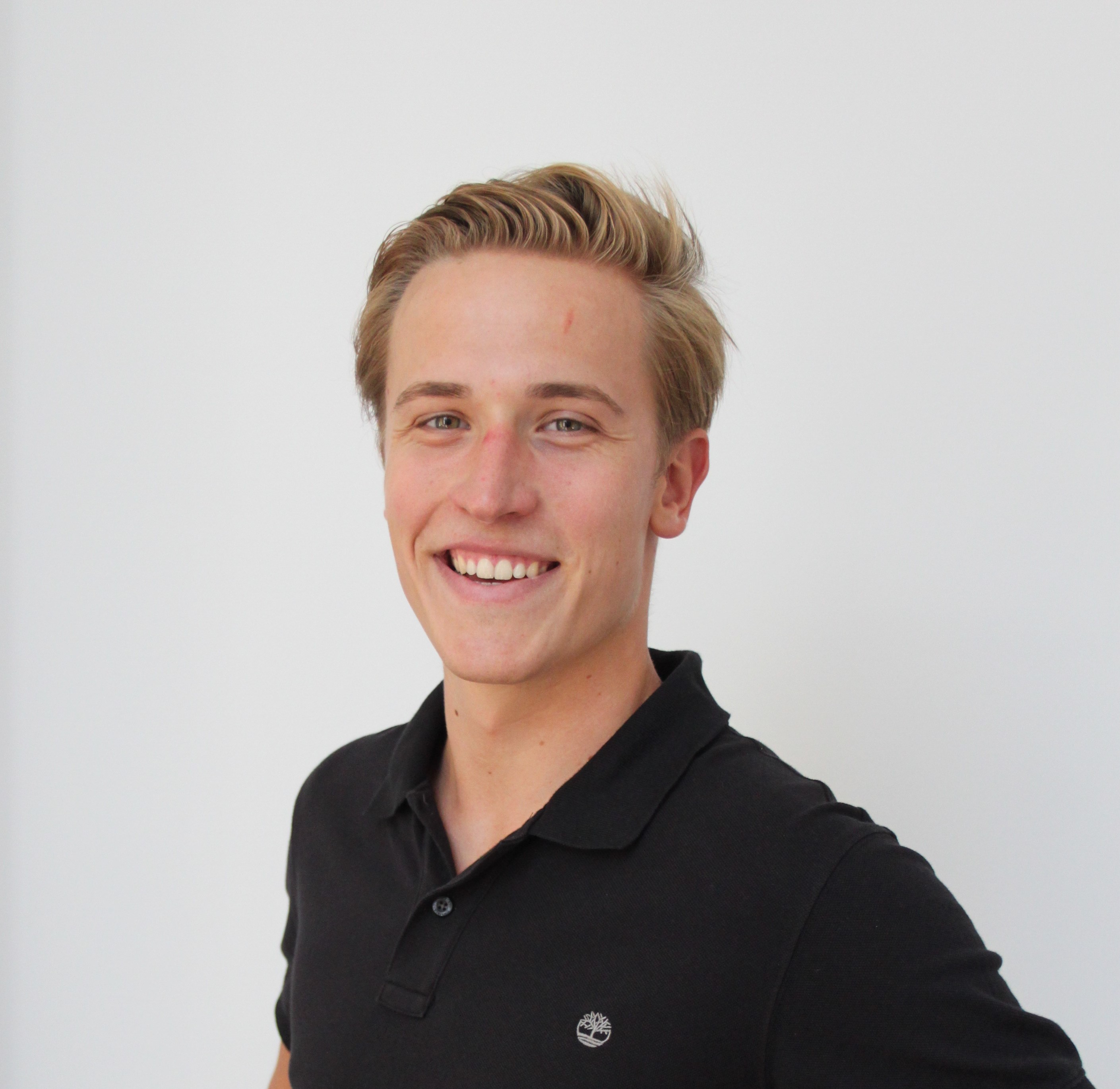 Mittlerweile studiere ich im dritten Semester Medizin an der Universität Navarra in Pamplona in Nordspanien. Es gab viele Gründe weshalb ich mich für die Universität Navarra entschieden habe, ausschlaggebend war auf jeden Fall die gute Reputation der Uni in Spanien und die Vielzahl der Kooperationen mit Universitäten überall auf der Welt.
Mittlerweile studiere ich im dritten Semester Medizin an der Universität Navarra in Pamplona in Nordspanien. Es gab viele Gründe weshalb ich mich für die Universität Navarra entschieden habe, ausschlaggebend war auf jeden Fall die gute Reputation der Uni in Spanien und die Vielzahl der Kooperationen mit Universitäten überall auf der Welt.
Weil für mich ein Studium in Deutschland nicht in Frage kam, war ich auf der Suche nach einer guten Uni im Ausland, an der ich auf Englisch anfangen kann zu studieren und dann im Laufe des Studiums noch eine weitere Sprache, am besten eine Weltsprache, lerne. Dies ist an der Universität de Navarra möglich. Im ersten Studienjahr sind fast alle Fächer und Praktika auf Englisch und die Universität zählt zu den besten in Spanien. Pro Semester gibt es nur ein relativ einfaches Fach (Psychologie und Einführung in die Klinik), das auf Spanisch gelehrt wird. Das allein wäre für mich Grund genug gewesen, um an der Universität Navarra zu studieren. Doch das Angebot von Sommerkursen an anderen Europäischen Unis, Krankenhauspraktika überall auf der Welt in Kooperation mit verschiedensten Partnerunis und Krankenhäusern und die Erasmus Möglichkeiten haben mich weiter überzeugt. Zudem finde ich das Aufnahmeverfahren sehr fair. Der Aufnahmetest ist auf Englisch und zählt 70 Prozent und kann direkt an der Uni Ende April geschrieben werden. Alternativ kann das Ergebnis des BMATs eingereicht werden (der BMAT kann an vielen Institutionen in Europa an mehreren Terminen im Jahr geschrieben werden). Ich habe mich für den Aufnahmetest an der Uni entschieden und habe das Ergebnis Mitte Mai erhalten.
Nachdem ich das erste Jahr an der Uni erfolgreich absolviert habe, ging es für uns Anfang Juli für eine Woche nach London an das Imperial College. Die Uni bietet in den ersten zwei Studienjahren einen einwöchigen Sommerkurs an einer europäischen Uni an. Das Thema der Vorlesungen in diesem Jahr war “Introduction to molecular pathology and cancer immunotherapy”. Die Woche war sehr intensiv und sehr interessant. Neben den Vorlesungen war zum Glück noch etwas Zeit, um London zu erkunden. Während dieser Woche habe ich total viel gelernt, hatte aber mindestens genauso viel Spaß mit meinen Kommilitonen. Generell verstehe ich mich hier sehr gut mit meinen Kommilitonen und obwohl ich vorher nur drei Monate Spanisch gelernt habe, gab es kaum Kommunikationsprobleme.
Im zweiten Studienjahr sind dann etwas mehr als die Hälfte der Fächer auf Spanisch. Doch nach einem Jahr ist das Spanischniveau gut genug, so dass ich und auch die anderen internationalen Kommilitonen kein Problem damit haben und hatten.
Nach dem dritten Jahr gibt es die Möglichkeiten ein Forschungspraktikum im Ausland zu absolvieren. Ab dem vierten Jahr beginnen die Internationalen Krankenhauspraktika im Sommer in vielen Ländern der Welt mit Partnerunis und Krankenhäusern. Falls man möchte kann man im vierten Jahr an dem einjährigen Erasmus Programm teilnehmen (z.B. nach Deutschland/Heidelberg oder nach Frankreich/Grenoble).
Generell bin ich sehr glücklich hier in Spanien, nicht nur die Wahl der Uni, sondern auch das Leben hier tragen dazu bei. Für mich war es ein großer Schritt in ein Land zu ziehen, dessen Sprache ich in nur drei Monaten mehr oder weniger gelernt hatte. Doch jetzt, eineinhalb Jahre später, kann ich sagen, dass es eine der besten Entscheidungen meines Lebens war und, dass ich jedem weiterempfehlen kann, hier zu studieren und für sechs Jahre zu leben. Akademisch und menschlich nehme ich hier sehr viel mit.
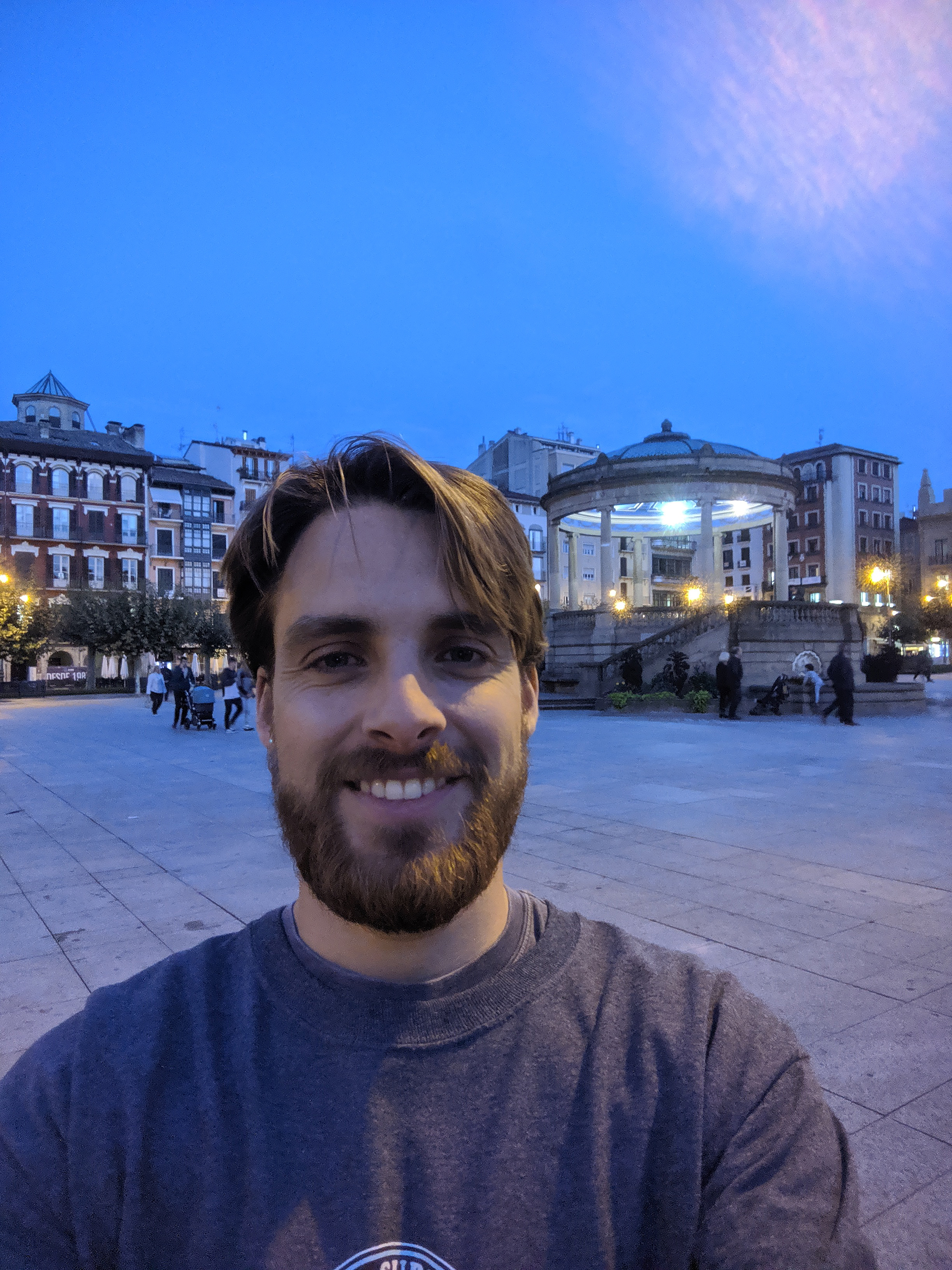 My name is Joel Marshall, I am from California and I decided to come to the University of Navarra because I was looking for adventure, change, and to experience living in another culture.
My name is Joel Marshall, I am from California and I decided to come to the University of Navarra because I was looking for adventure, change, and to experience living in another culture.
The first year starting at the UNAV was a hard year because of the adjustments I had to make living abroad, as well as the mindset I had coming into my 6 years here. I was very far from my family and friends, however I was quickly able to find a new group of friends to have a great experience and together we created an environment for supporting each other. Once I had a great group of friends and was established in Spain, I feel I was fully capable of handling the life of a medical student while also taking the time to discover the joys that Pamplona and Spain itself offers.
The Universidad de Navarra offers a very high quality Medical program. My favorite attributes of the program being the quality of education, the information they teach is all of the newest and up to date, and most highly I value the availability of the staff. I have had an amazing experience with the administration as well as my professors because of the amount of support and access you have to meet up with them and resolve any issue you have.
I was also worried when I began that the information I was being taught at the UNAV might not be the same as that taught in the US. While both systems for medical school are very different, I was still well prepared for my USMLE exams. I had to work very hard on my own to study for the USMLE seeing as subjects are taught in a different order, the information emphasized on the test is different, as well as the question structure. However, to all of those thinking of doing residency in the US, I can say after the test that there is no reason for a student at the UNAV to do poorly on the USMLE with hard work and proper self guided preparation.
Now that I am in my 6th year of medicine and looking back on my experience, I am very happy I made the decision to come study abroad at the UNAV. While the universities ideals and my own are not always in concordance, I appreciate very much the quality of education that they gave me as well as the passion I saw in the staff and in my professors to help prepare the future generations of doctors. I feel my perspective of the world has changed by living abroad, it puts the world into perspective and gives you a greater understanding of the trials of people from different cultures and backgrounds and reminds you of really what’s important and unites us all.
If I was to give advice to students entering their first year at the UNAV as an international or not, I would emphasize 3 points. One, is to put yourself out there and put energy into the group of friends you will inevitably find, they will be your greatest support while away from home and will also rely on you in their times of need. Two is take advantage of all of the activities, groups, and trips organized by the university and immerse yourself into Spain's rich culture. Lastly, I would advise to take full advantage of the availability of the academic faculty. You will have struggles and problems but all of your professors and faculty is there to help you! Good luck and have the greatest experience you can!!
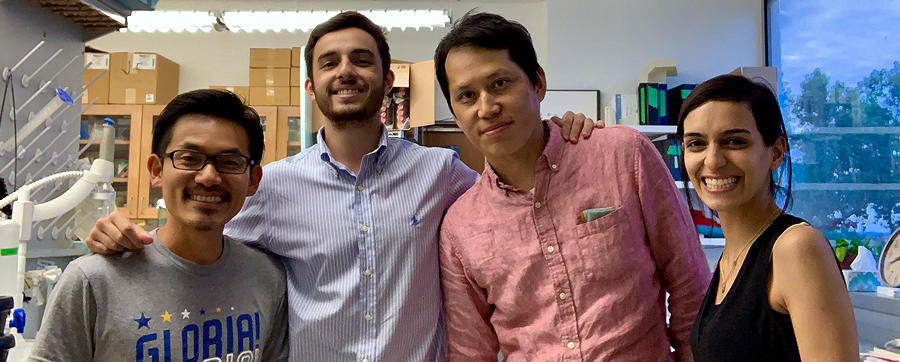
Muchos universitarios esperan ansiosos al verano para poder salir del ambiente de aula y poder realizar todo aquello que no hacen durante el curso. Y es por ello que este verano pasado, con la intención de darle un plus a mis vacaciones, me animé a apuntarme a dos actividades que ofrece la Universidad de Navarra en el extranjero para alumnos de la Facultad de Medicina.
La primera se trataba de un Summer Course, el cual se celebra cada verano para alumnos tanto de primero como de segundo curso pertenecientes al International Program in Medicine. Este año pasado se organizó en el Imperial College London y en él se impartió una asignatura de Clinical Neurology. Durante esta experiencia tuve la oportunidad de aprender y reforzar conocimientos de cursos pasados al mismo tiempo que compartir buenos momentos con mis compañeros de curso, todo ello en una ciudad con tantas alternativas como Londres. Las clases eran por la mañana con descansos para comer. En ellas, aprendíamos tanto conceptos teóricos como también cuestiones prácticas que son de una inmensa utilidad para un profesional sanitario. No faltaron tampoco los consejos provenientes de charlas experienciales de los profesores que nos contaban sus propias vivencias y animaban a seguir sus pasos. Fue tras la charla de una investigadora invitada por la universidad cuando aproveché para preguntarle en relación a mi próximo viaje, que coincide con mi segunda experiencia de intercambio en mi verano. De todo lo que me llevé de Londres destacaría, independientemente de todo lo bueno aprendido, la oportunidad de poder haber conocido con más profundidad a mis compañeros de carrera, pues el vínculo que se crea no es ni de lejos comparable al de durante el curso.
Mi segunda experiencia en el extranjero del verano pasado viene también de la mano de la universidad que, cada verano organiza unas estancias de investigación y rotaciones clínicas a una gran variedad de lugares y programas. Yo estuve durante un mes en un laboratorio de la Universidad de Kansas, involucrado en un proyecto que trataba de buscar una cura para la ELA. A lo largo de los primeros días me dediqué a seguir al investigador del proyecto e intentar aprender todo sobre esta terapia para poder ponerme al día y poco a poco ser capaz de asumir tareas por mi cuenta. Durante mi estancia, desde mi laboratorio se me animó a tomar el curso de entrenamiento de animales que ofrecía la Universidad de Kansas. Con este curso de formación pude acceder a la instalación de animales y hacer valoraciones neurológicas de los ratones para hacer el seguimiento del tratamiento. Mi estancia en Kansas fue una experiencia muy enriquecedora, no sólo en el aspecto académico sino también en el personal. Durante este tiempo, aprendí muchas técnicas nuevas, adquirí una gran cantidad de conocimientos y experiencia práctica y tuve la oportunidad de hacerlo rodeado de profesionales muy experimentados que siempre se mostraron cercanos para resolver cualquiera de mis dudas.
Finalmente, creo que hasta que uno no sale y pone en práctica todo lo que aprende en el aula, no sabe de lo que es capaz. Durante el verano descubrí que mi carrera va más allá y que viajar al extranjero para conocer cosas nuevas me ha hecho darme cuenta de lo grande que puede llegar a ser mi profesión.
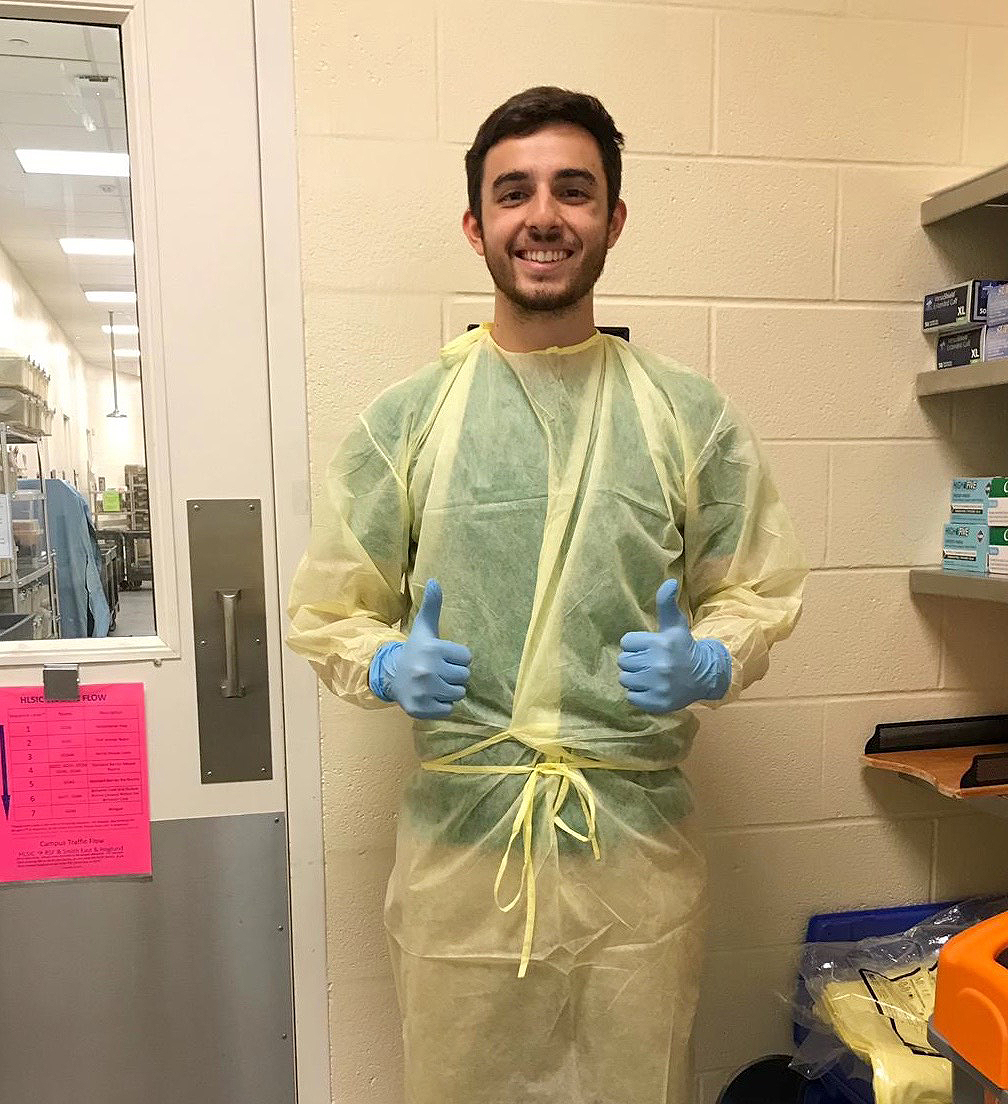
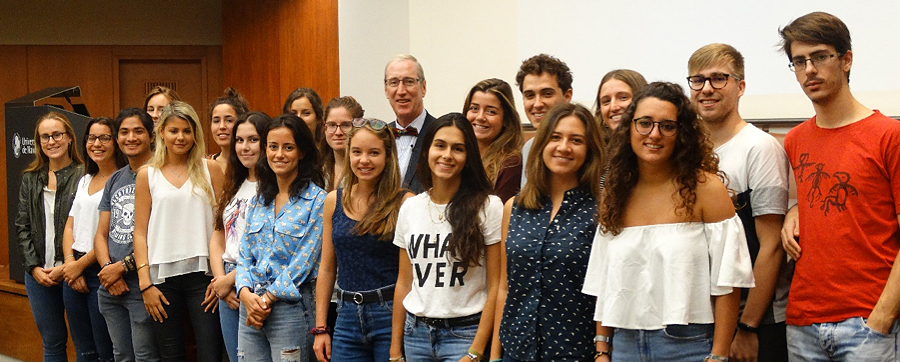
▲ Dr. Calhoun with his students at #MedUNAV
Dr. Byron Calhoun visits the School of Medicine at the University of Navarra every year to teach Maternal Fetal Medicine. He works at West Virginia University and is one of the greatest experts on Perinatal Palliative Care and a pioneer in this area in the United States.
How can you define your experience as an international professor at the University of Navarra?
It is actually a wonderful experience. Pamplona is a beautiful city, it is compact, it is very safe, the people are very friendly… and the food is excellent! The university is beautiful and the facilities are very, very good. The audio visual is excellent, everything here is very welcoming. I think anybody who wants to do an international experience should come to the University of Navarra, plus it is easy to get to Pamplona. There are direct flights from the US to Barcelona and Madrid and easy transport. It’s great place, I love coming back, and that is why I come back every year.
Do you think the University of Navarra School of Medicine is a good place for international students?
I do. I think that the welcoming atmosphere here is excellent. The Spanish students are very welcoming. The School of Medicine is very interested in teaching. The city is beautiful. The area has a reasonable living experience and I think that for students, this is a great place because it’s small enough to be very easily navigated but yet it’s got really state-of-the-art education, so I think everyone would be satisfied here, it’s wonderful place. I love coming here!
How do you see the students when you give class?
The students are very enthusiastic and we get a lot of participation. Fortunately, they speak good English because my Spanish in not that good and we can communicate and we have a lot of interaction. I like to interact with the students, many questions, a lot of give and take and they have been very good at participating in that. They are very interested and I have had good participation. A full class this year, so it has been very gratifying and I really like coming here because the students are just wonderful to teach, really a lot of fun to educate. They are interested in my topics, and that is the best of all.
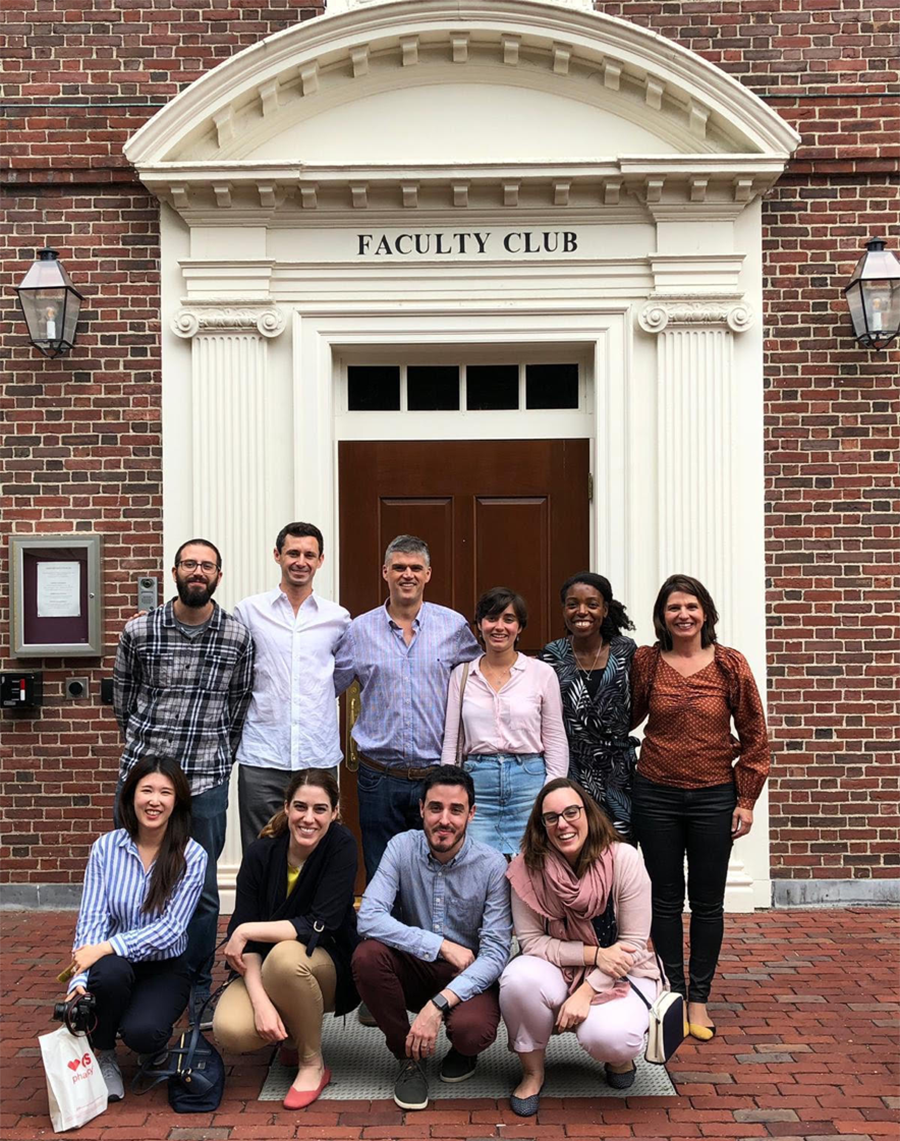
▲ Lola de Marcos, de pie, tercera por la derecha.
Sin lugar a dudas, mi participación en el Laboratorio Sepulcre (Sepulcre Lab) de Harvard Medical School ha sido una de las experiencias más estimulantes de mi etapa en la Facultad de Medicina de la Universidad de Navarra. Desde mi llegada a Boston en mayo hasta mi partida en agosto, aprendí, crecí y conocí a muchísima gente con la que espero no perder nunca el contacto.
Académicamente, he podido entender mejor las aplicaciones de la fMRI/fcMRI y su valor para conocer el funcionamiento del cerebro. Aunque ya había estudiado los fundamentos de la técnica durante la carrera, en Boston pude entender realmente cómo el flujo cerebral puede predecir no sólo la actividad del cerebro, pero también su conectividad. Por otro lado, la teoría de grafos era un campo completamente nuevo para mi y su aplicación en neurociencia me pareció fascinante.
Además, me he dado cuenta de que la integración multidisciplinar es fundamental en la investigación biomédica. Llegando de la Facultad de Medicina, donde lo más distinto que nos encontramos es algún estudiante de Farmacia que se ha equivocado de aula, la posibilidad de trabajar con ingenieros, psicólogos e incluso neuro-economistas ha sido muy enriquecedora.
La propia naturaleza del Laboratorio Sepulcre es multidisciplinar, puesto que combina dos especialidades (Radiología y Neurología) que afrontan la misma enfermedad (la enfermedad de Alzheimer) desde perspectivas distintas. La oportunidad de trabajar con ingenieros me permitió aprender sobre el mundo de la informática y programación y sobre la inmensidad de posibilidades que existen en este campo.
Mi experiencia fue apasionante también a nivel personal. Pude participar en un ambiente profesional, captando su dinámica y responsabilidades. En este sentido, lo que más me llamó la atención fue el increíble trabajo en equipo de los investigadores que me rodeaban; todos nos ayudábamos muchísimo. Además, me di cuenta de que la creatividad, cooperación y valentía son de las cualidades más valoradas, lo que me motivó para mejorar en estas áreas. Por otro lado, vivir en Boston me obligó a saltar fuera de mi zona de confort y creo que esto me ayudó a adaptarme en seguida. Yo repetiría la experiencia sin dudarlo y la recomendaría a cualquier compañero que se atreva a cruzar el charco. La Facultad de Medicina ofrece esta oportunidad todos los años y merece la pena aprovecharla.
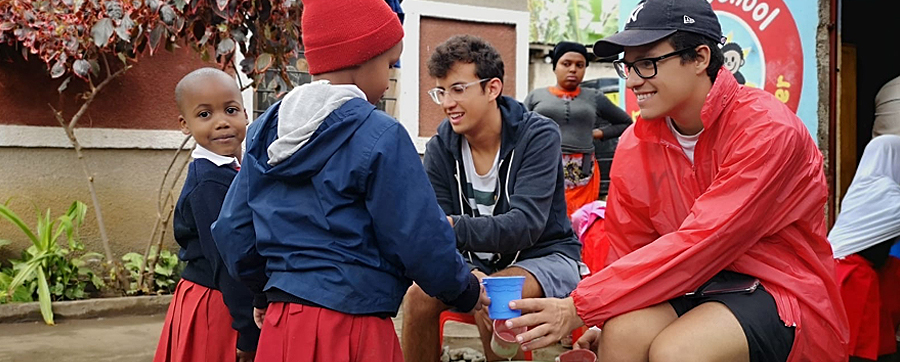
▲ Ramón Pardo, de rojo, en una de sus estancias de voluntariado.
Mi nombre es Ramón Pardo Puras y estudio Medicina + International Program en la Universidad de Navarra. Estoy en quinto de carrera y la verdad es que se me está pasando volando. Son años duros porque hay que estudiar mucho, pero es una carrera muy bonita y que merece la pena.
Tengo la suerte de que en la Universidad de Navarra en la que estudio se fomenta no solo la formación académica, sino también la formación personal. Los sábados por la tarde hago voluntariado en la Asociación Anfas con un grupo de niños y adolescentes discapacitados. Son niños que no pueden hacer planes sin supervisión como harían los niños de su edad y los hacen conmigo y el grupo de voluntarios. Empecé en primero de carrera y he seguido hasta ahora. Es algo que recomiendo a cualquier alumno de la facultad que haga.
Durante los veranos he hecho voluntariado en dos países de África. En 2016 estuve en Uganda, trabajando en una clínica por las mañanas y, por las tardes, en un colegio-orfanato. En la clínica aprendí muchos métodos rudimentarios que, por falta de recursos, son los que allí usan para diagnosticar malaria, controlar un embarazo… Tuve la suerte de estar con un médico del que no solo aprendí Medicina, sino que me enseñó muchos aspectos de la relación médico-paciente. El trato que daba a sus pacientes (personas que pobremente sobrevivían en su día a día) era espectacular y uno de los más humanos que he observado, por el momento, en mi breve carrera profesional.
En el colegio-orfanato estudiaban niños de uno de los distritos más pobres del país. Con mi grupo de voluntarios pintamos el colegio y les compramos una cabra para fomentar una fuente de ingresos alternativa. Un año después conseguí los fondos para que la ONG Ugandan Water Project construyera en el colegio un sistema de recogida de agua de lluvia que, mediante una serie de filtrados, la hacía apta para el consumo Humano, ya que su “fuente de agua” era un manantial contaminado. A día de hoy mantengo el contacto con el colegio y me gustaría seguir realizando proyectos con ellos.
Este verano pasado he estado con un amigo de la Facultad de Medicina en Tanzania, esta vez en un colegio de una de las ciudades más grandes del país, Arusha. En el colegio estudiaban 90 niños repartidos en dos clases minúsculas y en cada una solo había una profesora. Nosotros nos encargábamos de ayudar con las tareas del día a día, corrigiendo deberes, ayudando en las clases, preparando la comida… Esta vez organizamos una recogida de fondos para comprar gallinas con dos objetivos: el primero, para que el colegio tuviera una fuente alternativa de ingresos; el segundo, para que la dieta de los niños (basada en harina, agua y azúcar) fuera un poco más variada y completa. También compramos un tanque de agua para que pudieran hacer un pequeño huerto en el colegio y cultivar verduras. Seguimos en contacto con el colegio y planeamos hacer más proyectos en el futuro.
Ambas experiencias me han ayudado a crecer no solo profesionalmente, sino también personalmente, lo cual es fundamental, más aún en una carrera como Medicina. Una de las cosas que más me gusta de la Universidad de Navarra es que tienen este aspecto formativo muy en cuenta e intentan proporcionarlo a los estudiantes mediante charlas, proyectos, TANTAKA… lo cual me parece de vital importancia.
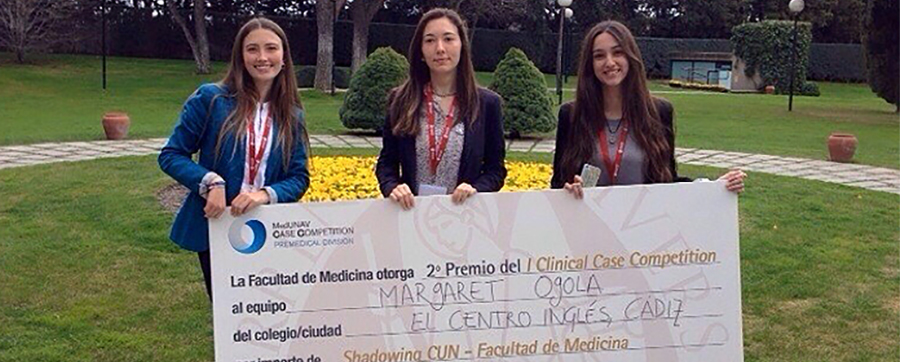
▲ Carmen Giménez, first on the left.
Hi reader! My name is Carmen Giménez, and I am a fifth year medical student at the Universidad de Navarra School of Medicine. Even though I like to think I am almost about to finish my studies, I can’t help but going back to the beginning, six years ago when I was still studying 2nd of Bachillerato.
By then I already knew I was going to study Medicine, or at least try my best to do so. And then a friend of mine told me about this Clinical Case Competition organised by Universidad de Navarra, in which we could get to play doctors trying to solve clinical cases. So I gathered other friends interested in studying Medicine and we started working on it. It was so much fun! We were clueless about Medicine, but we spent our breaks in school in the IT room googling the symptoms we were given and trying to interpret test results. Our tutor was of great help and she oriented us along the way. I am from Cádiz (Spain), so we couldn’t do the first part of the presentation in Pamplona (where the UNAV’s Campus is located) and we did it via Skype. We though that would be a handicap and that there was no way we would be getting into the final, but we were wrong and very happy about it. So after more break hours invested and some reunions to practice the oral presentation itself, off we went to the final in Madrid. We were really nervous and all 8 groups did great, but we managed to end up being second!
After that, we carried on with our studies and focused on Selectividad, but when the time came I was really doubting between studying in Madrid or in Pamplona. As a price for the Clinical Case Competition, I won a 3 days shadowing at Universidad de Navarra, and so my dad told me: “Hey, how about we go on a trip to both Pamplona and Madrid, you’ll see both campuses and then you’ll decide”. That is what we did, and after seeing the University of Navarra and meeting everyone here (including the one who is my current clinical tutor) all my doubts were cleared.
As I mentioned before, I am in fifth year, but since the beginning I loved the city of Pamplona (even though getting used to the weather was a little hard), the University, and obviously Medicine. It doesn’t matter where in the world I end up after finishing my degree, I will always take with me the knowledge (theoretical and practical about Medicine and life in general) I acquired over the six years, and the amazing friends and contacts I’ve made during the way at the Universidad de Navarra School of Medicine.
Mostrando el intervalo 11 - 17 de 17 resultados.

